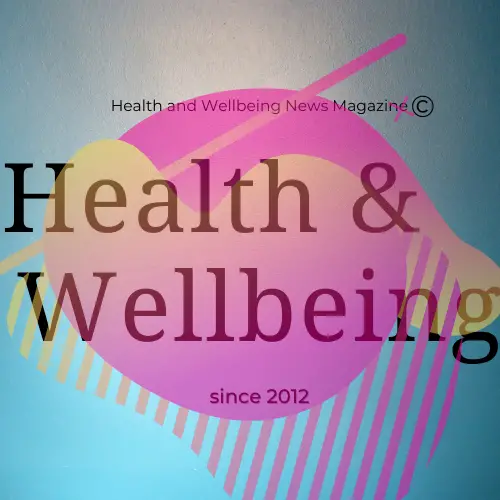The first step toward taking control of your drinking is to be aware of why you drink.
Research reveals the following common reasons why people drink:
• Sociability
• Like the taste
• Feel at ease/reduce anxiety
• Get intoxicated
• Get drunk
• To forget problems
• Because everyone else is
How many times do you have a drink “just to be sociable”?
You may not really have wanted the drink, but you feel pressured to drink because everyone else is. Drinking alcohol is seen as socially acceptable, alcohol is easy to buy in many different places and drinking at home is commonplace.
When you go to a restaurant for a meal you are offered a drink while you peruse the menu and many bars and pubs advertise “happy hour”. Drinking alcohol has become so acceptable that you may be perceived as a killjoy or spoilsport if you don’t join in. No wonder then that young people drink in order to be accepted by their peers. Many people drink as their way to fit in with others. It often boosts their confidence and helps reduce stresses they may usually have in a social setting.
While you would think peer pressure would stop after school and college days, for many adults it does not. Co-workers who make it a habit to go to the bar after work or at lunchtime can put pressure on you to drink – going out with friends for a meal, birthdays, weddings or family reunions may also include social pressure and expectations to drink.
You may have been brought up seeing your parents enjoying a glass of wine with a meal and learned to associate drinking with relaxing after a long day at work. The more “normal” and “accepted” alcohol becomes, the easier it is for people to disregard the dangers of alcohol abuse.
Many people drink to relax, feel at ease or reduce anxiety.
They may feel shy, awkward, or afraid in certain situations. It can be a social situation, such as a party, a first date, or it can be something more formal such as a meeting at work. Alcohol naturally causes people to lose their inhibitions, feel more relaxed, and become seemingly more outgoing or less shy temporarily. (Temporarily is the key to be stressed – it can cause more problems after prolonged use).
Rather than dealing with problems such as overcoming shyness or other issues, alcohol is used as a temporary solution to deal with awkward situations. Alcohol gets risky when you start to rely on it to feel good and then find that you need more to achieve the desired feeling. If you can’t feel good on your own, and you use alcohol to do so, at a certain point you run the risk of starting to drink more and more each time to still feel the effects. This can be the beginning of an addiction. If you drink to feel good, you should ask yourself if you can also feel at ease without alcohol.
Depression and stress can be a large factor in our drinking habits.
Many people in a stressful situation want something that is quick and easy to get their mind off their problems. By drinking alcohol, someone is able to forget about their problems, and so it becomes a temporary solution to their problem. Unfortunately, excessive drinking only leads to more problems, and while you may forget about something for a few hours while drinking, it does not actually remove the cause of stress.
Sometimes people drink to escape their problems.
Escapism can be brought on by a variety of things – boredom, depression, mounting stress or problems, etc. For those who have been drinking long term and are borderline alcohol abusive, the need for escapism rises.
For some of us, it simply becomes a habit.
Just like some people enjoy a Coke or Pepsi after dinner, others enjoy an alcoholic drink. Habits, in moderation, aren’t necessarily bad but when they become consistent and more frequent, there may be an issue.
If you have to drink in order to have a good time, it may be time to take a closer look to see if your habit has become an addiction.
You might like to take a moment to think about and maybe write down all the times when you are likely to have an alcoholic drink. Ask yourself if there are times when you don’t really want to drink at all or perhaps feel pressured to drink more than you really want to.
Do you ever find that once you’ve had a couple of drinks, you think “what the heck” and carry on drinking to excess?
How many drinks does it take before you feel drunk? Remember that if you are already drinking to excess, it may take more alcohol for you to actually feel drunk. (Many people think they are safe to drive because they don’t feel drunk but they are way over the safe legal limit.)
Are you comfortable with the amount you drink? Do you get hangovers? Have you put on weight? Do you sometimes find it hard to remember what happened when you had a drink?
Take time to think about why you drink. This is the first step toward you being in control of your drinking.
Stress and life’s challenges can also be potent triggers.
It’s common to turn to alcohol in an attempt to soothe frayed nerves or escape from reality temporarily. Yet, this temporary reprieve often leads to a cycle of dependence, hindering the development of healthier coping mechanisms.
Another crucial factor is self-awareness.
Understanding one’s own limits and patterns of consumption can shed light on whether alcohol serves as a genuine source of enjoyment or a crutch. Recognizing when that line is crossed is pivotal in maintaining a healthy relationship with alcohol.
As we navigate these insights, it becomes evident that sometimes, it’s essential to consider quitting drinking altogether. This decision isn’t a sign of weakness, but rather a courageous act of taking charge of one’s well-being. It’s a choice to prioritize mental and physical health, and to seek fulfillment in alternative, sustainable sources of joy and contentment.
Quitting drinking can lead to a transformative journey of self-discovery and empowerment.
It offers the opportunity to reevaluate priorities, strengthen relationships, and reclaim control over one’s life. It’s a choice rooted in self-respect and a commitment to a brighter, more vibrant future.
In conclusion, understanding the motives behind your drinking habits is a crucial step towards taking control of your life. If these motivations are rooted in unhealthy patterns or dependence, considering quitting drinking may be the most empowering decision you can make for your well-being and future. It’s a path towards newfound strength, clarity, and a deeper connection with your authentic self.





